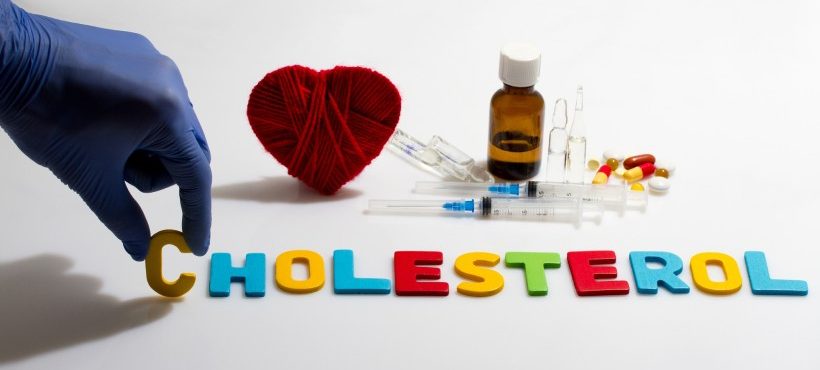
What Is High Cholesterol: A Complete Guide
The conveniences of modern living have meant that it is all too easy to find ourselves suffering from health problems. Whether it be working from home or the ease at which we can eat badly, these factors all lead to the rise in various health conditions.
One of the most prevalent is high cholesterol. In fact, high cholesterol has been noted in 28% of Canadians between the ages of 18-79. But what is high cholesterol? What are the dangers and what can you do to prevent yourself from developing the condition.
Read on to find out.
What Is High Cholesterol?
Before answering the question “What is high cholesterol?”, we first need to understand the role of cholesterol in the body.
Due to the dangers that high cholesterol poses to our health, it is understandable that most people would think of cholesterol as negative, but in reality, it is a vital component in the functioning of our bodies.
Essentially cholesterol is a waxy substance that is produced into our bloodstream from our liver. It can also be converted from the food that we eat. It serves many functions, such as helping to form layers in our cell membranes, stimulating hormone production, and helping the body produce vitamin D and bile.
Sounds good so far right? The problem is that there are various types of lipoproteins (the medical term for cholesterol) and the build-up of the wrong type in our bloodstream can lead to health problems.
An excess in low-density lipoprotein cholesterol (LDL) is what is at the core of most problems and leads to high cholesterol readings. When there is too much of this type of cholesterol it can lead to plaque building up in the arteries, with the biggest dangers being posed to those in the heart and brain. In the worst-case scenario, high cholesterol will be a major factor in coronary heart disease, heart attacks, and strokes.
In contrast, high-density lipoprotein cholesterol (HDL) works to remove damaging cholesterol from the body, bringing it back to the liver for it to be disposed of.
What Causes High Cholesterol
The causes of high cholesterol can vary greatly and anyone can develop the condition. That being said some factors are out of the control of many.
One such factor is a genetic predisposition to high cholesterol. If you have a family history of the condition, then you will need to be conscious of being checked on a regular basis.
Other factors out of the control of many that heighten the chances of the condition are being male, old age, and having underlying health conditions like diabetes. In addition, certain ethnic groups such as South Asians are more susceptible to developing high cholesterol.
One of the most common high cholesterol causes and fortunately the most manageable way is through our diet. Eating high amounts of trans and saturated fats can easily lead to a build-up of low-density cholesterol. Connected to this are common connections to eating badly such as obesity and lack of exercise.
Smoking and high alcohol consumption can also be causes of high cholesterol.
So how do you know if you have it?
Unfortunately, there are no obvious high cholesterol symptoms. Therefore the best way to note if you have it is through a blood test and via displaying symptoms of the major conditions that high cholesterol is connected to, which is often a case of catching it too late.
In certain cases, however, it may be able to spot high cholesterol through bluish rings that appear around the cornea known as “arcus senilis.” Another is when yellow-coloured fatty deposits begin to appear around the eyelids and nose known as “xanthelasma.” Fortunately, both of these conditions do not impair vision.
How Is High Cholesterol Treated?
In most cases, if your doctor has noted high levels of cholesterol in your blood then lifestyle changes will not be enough alone to change it. They then will prescribe you medication, the most common of which are statins. Statins work to lower the production of LDL in the liver.
Other options are Bile acid sequestrants and Fibrates. Bile acid sequestrants bind to the bile produced making the liver produce more, using up more LDL in the process. Fibrates are effective at reducing other fats in the body as well as helping aid in the production of HDL.
What Can I Do to Prevent High Cholesterol?
As is always the case, prevention is better than cure. Therefore if you know you have high chances of developing high cholesterol there are some steps that you can take.
The first would be to pay attention to your diet. Avoid a having high cholesterol diet by reducing the amount of fast food, carbonated drinks, and processed foods you take in.
Incorporating exercise into your routine is another way to reduce the chances of developing high cholesterol. This does not need to be vigorous, with just 30 minutes of activity every day being enough to have an effect long term.
Understanding High Cholesterol
Our bodies are engineering masterpieces, which means that any slight changes in their function can usually be self-corrected. Yet as we have seen in the case of high cholesterol, it is important to be vigilant and take care of it if we don’t want to deal with the unfortunate consequences of this condition.
We hope this article helped you answer the question “What is high cholesterol?” If you have been diagnoses with the condition and need to find your prescribed medication we can fulfill all your needs in our online shop.
Check it out today!


